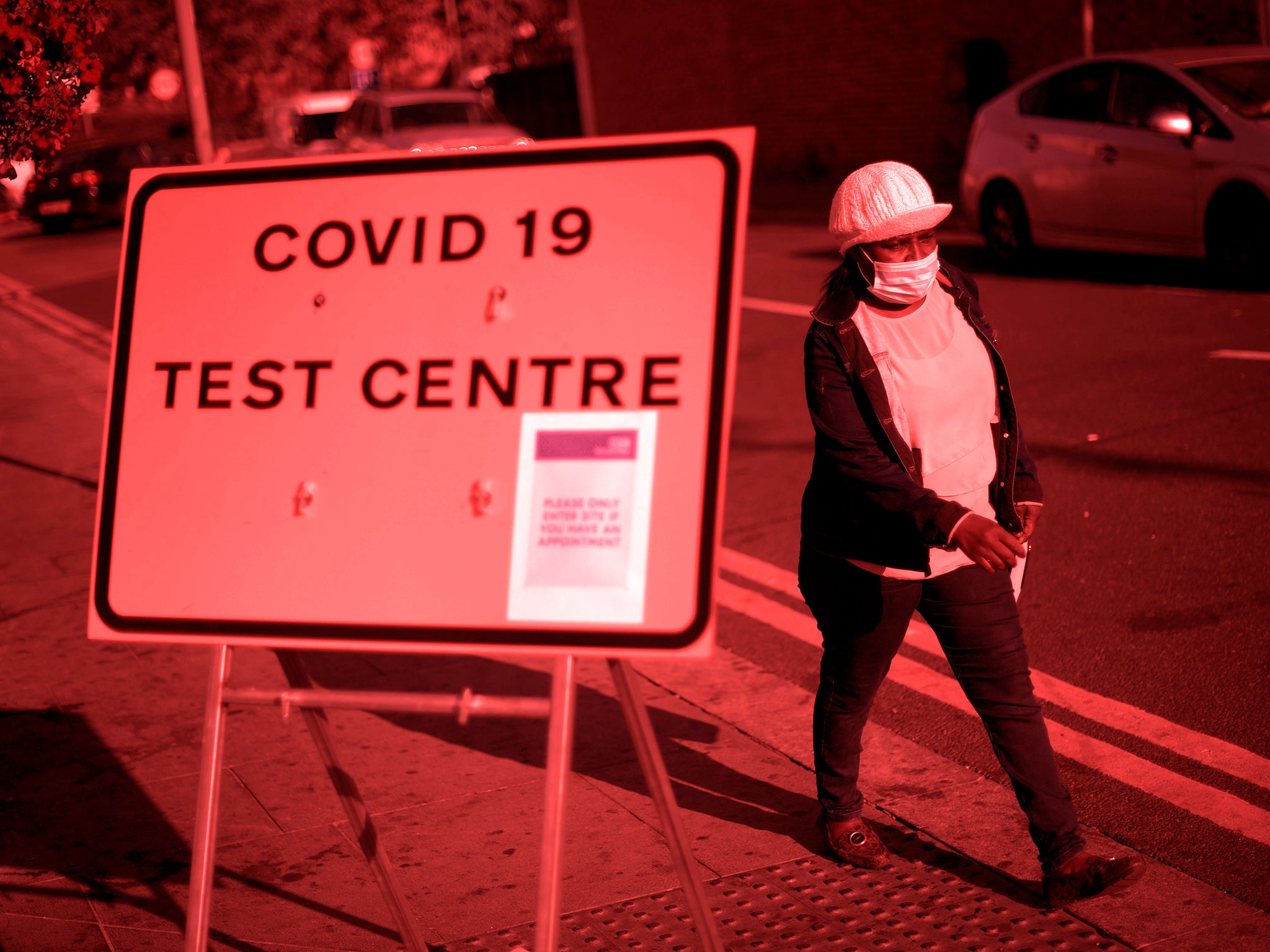Coronavirus false positives: How many are there and is it actually an issue?
- What is a false positive?
- Are false positives behind the surge in new cases?
- Are false positives an actual issue?

As coronavirus cases once again begin to surge across the UK, the issue of false positive test results has once again been raised.
Politicians and scientific advisers have warned that rising case numbers could be attributed, at least partly, to the problem.
Conservative MP Desmond Swayne warned in parliament this week that they were “giving a distorted impression of the trajectory of the disease.”
He said: “It doesn’t take a mathematician to tell you that a relatively small percentage of false positives will have a significant impact on our estimate of how many people are infected.”
A number of journalists and public figures have jumped on this to spread a theory that false positives test results actually account for more than 90 per cent of all positive results in the country.
So what exactly is the problem with false positives and how much heed should be paid to them when assessing the UK’s response to the pandemic.
What is a false positive?
False positives are when people test positive for Covid-19 despite not actually being infected with the virus.
The specific issue at the centre of the outcry is the false positive rate for testing.
This is the proportion of false positives for the total number of people who are tested. Though occasionally it is used to refer to the proportion of false positives for people who test negative, or even as a proportion of people who test positive.
The false positive rate frequently touted by senior government figures, including Health Secretary Matt Hancock, is 0.8 per cent.
In a recent TalkRadio interview he claimed: “Under 1 per cent means that for all the positive cases, the likelihood of one being a false positive is very small.”
Are false positives behind the surge in new cases?
Matt Hancock’s comment was seized upon by radio host Julia Hartley-Brewer who erroneously concluded that the vast majority of all positive test results are therefore inaccurate.
By her interpretation, 0.8 per cent of all tests carried out in the community were coming back as false positives, meaning that if 1,000 people were tested at random, then eight people would receive false positive results.
If only nine people out of those 1,000 tested came back with positive results — false or true — then eight out of nine, or 91 per cent, would be false.
“An FPR of 0.8 per cent when the prevalence is so low means that at least 91 per cent of ‘Covid cases’ are FALSE POSITIVES’.”
This misinterpretation also led journalist Toby Young to accuse the government of hiding the scale of this issue from the public “for nefarious reasons”, despite it being completely untrue.
Are false positives an actual issue?
False positives may cause concern for individuals, but on a societal level it is false negative test results that are more dangerous, as these can contribute to the silent spread of the virus.
Speaking to the BBC, Professor David Spiegelhalter from the University of Cambridge said that the figure touted for a false positive rate of 0.8 per cent “seems far too high” when looking at other ONS surveys.
“The ONS survey [from June] did 112,000 tests and only got 50 positive tests out of it," he said, noting that even if all of these were false positives, the rate would be under 0.05 per cent.
He described the false positive issue as “a complete red herring” that was distracting from the actual issue of a rapidly spreading virus.
He said: “The clear difficulty that Matt Hancock has had in dealing with these questions does show the need for considerably more education at a high level on how this plays out in reality."
Join our commenting forum
Join thought-provoking conversations, follow other Independent readers and see their replies
Comments
Bookmark popover
Removed from bookmarks